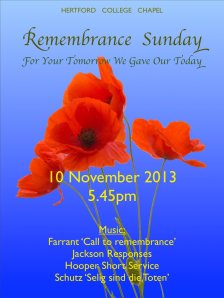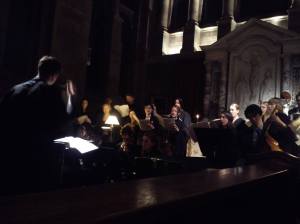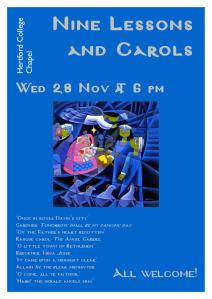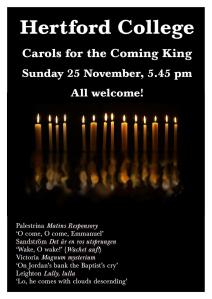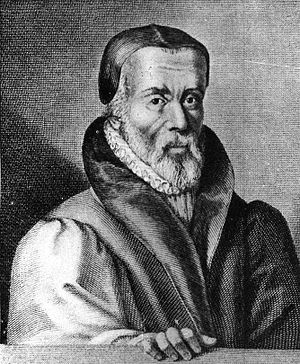On Thursday (26 November 2015) I was invited to speak at the Oxford Union marriage debate. Of our group of six ‘paper speakers’, the big hitters were Germaine Greer and Peter Hitchens. I have been asked to write my thoughts about the evening.
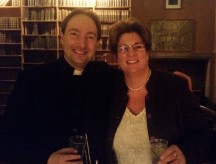
Bait & switch
I am no celebrity, but was drafted in at the last minute to fill a space in the debate card. I had spent most of the Wednesday away from Oxford at a family funeral, and returned to a find a rather exasperated Union returning officer waiting to collar me before I said Mass. I’m sure he explained things perfectly, but I’m afraid I only registered the snippets “Germaine Greer”, “state recognition of marriage” and “oppose the motion”. My response was, “Well, I don’t have anything planned tomorrow evening, and, if you’re desperate, I’ll do it”. By e-mail later that evening, I was informed that the title of the debate was ‘This House Believes the State should not Recognise Marriage’, and I was an opposition speaker. I had not until then understood the double negative: I had agreed to speak in favour of state recognition of marriage.
Instinctively, my heart is against state recognition of marriage. I know people in other countries who have had to convert to another religion in order to marry. I believe tax breaks for married couples is a peculiar kind of social engineering, bribing couples to marry and remain married for lower tax code. Although I am a supporter of same-sex marriage, I found the UK government’s rush to implement it strained our already confused and complex marriage law (at least English marriage law), creating qualitatively different marriages in law and allowing the established church to barricade itself within a narrow limitation of the law of the land to which it ties itself (other-sex marriage only).
I took heart in the maxim that one is strongest in debate when one debates against one’s own beliefs. It would have been easy to divide the debate into a liberal proposition opposed by conservatives, so, if I were to be on the opposition bench, I wanted my liberal and progressive credentials to shine through unmistakably. This was especially true because I felt it only right to wear clericals, and, as the invitation requested ‘black tie’, that meant dusting off my frockcoat — I would look the image of a 19th-century Anglican arch-conservative.
The first draft of my argument was drawn from the preface of the Common Worship Marriage Service: “it enriches society and strengthens community”. The Church of England’s theology of marriage is that it is a social good, that stable, loving human relationships are the building blocks for a good society. I can immediately see a problem with this: it can be up-ended to bash single parents, divorcees and single people as antisocial. I had some good advice on academic papers to support this view from old friend and Oxford anthropologist Dr Jon Lanman. However, the more I thought through marriage as a social good, the greater the number of philosophical holes I saw in it.
On the day of debate I had lunch with Hertford College’s irrepressible feminist political theorist Dr Dana Mills, who tore my social-good argument apart and reckoned Germaine Greer would have no trouble in doing the same. She had the view that human rights law was the way to proceed: how states legislate to protect our individual rights to family and private life. We happen to have a shared appreciation of Eleanor Marx, socialist activist and daughter of Karl, and I loved Dana’s suggestion that I quote Tussy’s 1886 The Woman Question on the floor of the Union.
That describes the ingredients of my paper: my sympathy for the proposition, showing myself to be, in spite of appearance, liberal and progressive, some elements of social good, human rights law, and Eleanor Marx.
Drinks & dinner
For those who don’t know, the Oxford Union is the student debating society of the University of Oxford, but its establishment and prominence is much greater than any other student society. In all my time at Oxford, I have never been a member or darkened its rather elegant portal. Of late, this self-proclaimed trumpet of free speech has seemed more enamoured of celebrity and controversy. I confess to being prejudiced against the Union, believing it to be one of the remaining residual habitats for Oxford’s ‘Brideshead factor’ and a place where pretentious boys go to play parliament in bowties and clipped vowels. I met some lovely people who do not fit this description, but there was no attempt to disabuse me of my prejudice.
The evening began with drinks, at which I had the great delight to meet with my debating opponent Prof. Dean Spade. Dean is an associate professor of law at Seattle University School of Law, and founder of the Sylvia Rivera Law Project, which provides free legal services to trans people.
At the following dinner, I was seated opposite my debating partner Jayne Ozanne and beside Germaine Greer. Jayne is a member of the Archbishops’ Council and director of Accepting Evangelicals, a network of evangelicals who accept the place of gay people in the church. I admit to being overawed by Germaine’s celebrity, telling her how an ex-girlfriend had given me The Female Eunuch to educate myself. I wanted to have a polite little dinner, too timid to bring up her recent statements on transwomen. The subject was brought up by others. Germaine’s response was that she had been continually, gratuitously misunderstood and misquoted, and that much of this can be traced back to a complex and difficult time at Newnham College.
The staff and food at the Union were very good. The dinner concluded with the pomposity of toasts, the last being the ‘loyal’ one. There are few places left that insist on this bizarre ritual (it is forbidden at my college), and I do not make the toast the monarch. My fellow republican beside me simply, wordlessly sipped at her drink.
Debate
The Union’s debating chamber was full. After some notices by various officers, we proceeded with the ‘paper speeches’ alternating between the proposition and the opposition. The proposition speakers were, in order, Tom Foxton, a student at St Peter’s College, Rabbi Shmuley Boteach, the author of Kosher Sex, Germaine Greer, and Dean Spade. For the opposition we had Harrison Edmonds, a student at University College, me, Jayne Ozanne, and Peter Hitchens.
I followed Rabbi Shmuley’s speech, an energetic performance packed with humour. I felt the only way to go was to contrast some dry, English self-deprecatory wit after the Hollywood bombast. I was not particularly happy with my performance, beginning a little too slowly and rushing the end. I had not timed my text, but it would have been just right for the ten minutes if I had started more quickly.
As Germaine Greer was introduced the inevitable protest erupted in the chamber from supporters of trans rights. She stood and silently faced her accusers, resolute. The protesters mostly shouted across each other, making it impossible for their point to be heard. A silent walk out, the unfurling of a banner or some other act might have been more successful than simple disruption. It was a pity that no member of the protest group remained to deliver a ‘point of information’ during Germaine’s speech or to deliver their own floor speech. The protesters were removed by security, while the Union officers spoke in self-congratulatory terms of upholding free speech at their removal — the irony seemed completely lost on them; they will have glowing political careers. In terms of the speakers, three of us — Dean, Jayne and I — explicitly mentioned our support for trans rights (that’s 2:1 for the opposition!).
The most striking part of Germaine Greer’s speech was her angry emphasis on the number of women who are killed by their partners or ex-partners in the UK — a shocking two women every week. I don’t think it had much bearing on the debate at hand, but it was an important fact to underline, and I thank her for reminding us of it and challenging us to do something about it.
Jayne Ozanne’s speech was brought to us by the word ‘passion’, with a touching account of how she once proposed marriage (the full text of her speech is here, do read it). Speeches from the floor followed, with some very good speakers. Many of these focused on the legislation for same-sex marriage. After the floor speeches, Dean Spade brought us important insight from the historical demography of the United States. He spoke about how marriage and lack of state-recognised marriage has been used to control the lives of people of colour, and its effect continues to this day.
Lastly came Peter Hitchens with perhaps the most lacklustre of all the speeches. He told us how society, politicians and judges have conspired to undermine marriage, and that marriage is a contract and that anyone seeking divorce is a contract breaker. Of course, no lawyer would make such a wild claim. As the Danish lawyer I had dinner with the following night told me, contracts are time-limited, specific in the duties entailed and have clear mechanisms for their cancellation. If marriage be understood as a contract, it is a unique, unusual type of contract. In the same way that new students get sexual-consent workshops in college, telling them that consent must be enthusiastic and ongoing, the ‘I will’ (not the ‘I do’ of Hollywood) of marriage is not made once and forgotten, but remade each day (that’s the hard part). As Peter spoke, all I could do was imagine the woman in a loveless marriage or an abusive marriage being told to keep up her end of the contract, being delivered back ‘home’ by the police from the women’s refuge. The miserable absence of any compassion was telling. For a man who claims to uphold Christian morals, lacking such compassion undermines any claim to be speaking from the vicinity of Jesus.
As they do, they voted. We, the opposition, were narrowly victorious 117:102.
Continue reading “Speaking at the Oxford Union marriage debate”



